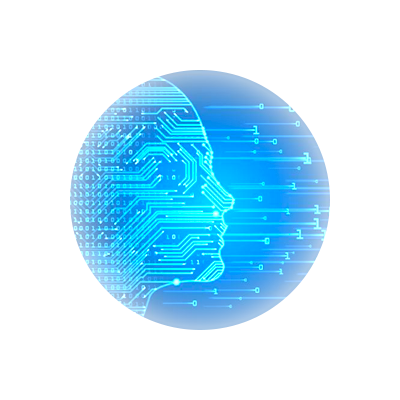A Brief of Generative AI
Key features and its applications
Generative AI Overview
Generative AI refers to a class of AI models that can generate new, synthetic data resembling the data they were trained on. Unlike traditional AI models that are primarily focused on classification or prediction, generative models create new data, such as images, text, or even tabular data. These models learn the underlying distribution of the training data and use this knowledge to generate similar outputs.
Key Features of Generative AI
- Creativity and Innovation: Generative AI models can produce novel content, which can be used for creative tasks such as generating art, music, and literature.
- Data Augmentation: These models can generate synthetic data to augment existing datasets, helping to address issues like class imbalance or data scarcity.
- Personalization: Generative AI can create personalized user content, such as custom product recommendations, customized emails, or user-specific designs.
- Simulation and Prediction: Generative models can simulate possible future scenarios and function in predictive modeling, risk analysis, and decision-making.
- Anomaly Detection: By understanding the normal data distribution, generative models can detect anomalies or outliers that deviate from this norm, which is valuable in security, fraud detection, and healthcare diagnostics.
Applications of Generative AI
- Content Creation:
- Art and Design: AI-generated artwork and designs can be used in various industries, including advertising, fashion, and entertainment.
- Writing: AI models can generate articles, stories, and code, assisting writers, journalists, and developers.
- Data Augmentation:
- Synthetic Data Generation: In fields where data is scarce, such as medical imaging or autonomous driving, generative models can create realistic synthetic data to train more robust AI systems.
- Class Imbalance: Generative models can be used to generate samples of underrepresented classes in imbalanced datasets, improving the performance of classifiers.
- Healthcare:
- Medical Imaging: Generative models can create synthetic medical images for training radiologists or developing diagnostic algorithms.
- Drug Discovery: AI models can generate new chemical compounds or simulate drug interactions, accelerating drug discovery.
- Personalized Medicine: By simulating patient data, generative AI can help create customized treatment plans based on a patient’s unique genetic makeup and medical history.
- Clinical Decision Support: AI models can generate potential diagnostic and treatment scenarios, assisting healthcare professionals in making informed decisions.
- Patient Data Synthesis: In scenarios where patient data privacy is a concern, generative AI can create synthetic patient data that preserves statistical properties without revealing sensitive information.
- Finance:
- Algorithmic Trading: Generative models can simulate market conditions and generate trading strategies.
- Fraud Detection: Generative AI can detect fraudulent activities by modeling normal transaction behavior.
- Risk Management: Generative models can simulate potential risk scenarios, helping financial institutions assess and mitigate risk.
- Entertainment:
- Game Design: Generative AI can create new game levels, characters, and storylines, enhancing the gaming experience.
- Film and Animation: AI models can assist in generating special effects, animations, and even movie scenes.
Generative AI in Healthcare
Generative AI holds immense potential in the healthcare industry, where it can significantly improve patient outcomes, streamline operations, and enhance the quality of care. Below are some specific applications:
- Synthetic Medical Imaging:
- Training AI Models: Generative AI can create synthetic medical images, such as X-rays, MRIs, or CT scans, which can be used to train diagnostic models, especially in cases where annotated data is limited.
- Image Enhancement: AI models can enhance the quality of medical images, making it easier for healthcare professionals to diagnose conditions accurately.
- Drug Discovery and Development:
- Compound Generation: AI models can generate new chemical compounds that have the potential to become new drugs, speeding up the drug discovery process.
- Molecule Simulation: Generative models can simulate how different molecules interact, helping researchers identify promising drug candidates faster.
- Patient-Specific Treatment Plans:
- Personalized Medicine: Generative AI can simulate patient-specific treatment outcomes based on individual genetic and clinical data, enabling personalized treatment plans.
- Predictive Diagnostics: AI can generate predictive models that anticipate the progression of diseases in patients, allowing for early intervention and better management of chronic conditions.
- Healthcare Chatbots and Virtual Assistants:
- Patient Interaction: Generative AI powers chatbots that can interact with patients, providing them with personalized advice, reminders, and health information.
- Medical Advice: AI-driven virtual assistants can generate responses based on patient symptoms, guiding them to the appropriate care or providing preliminary diagnoses.
- Clinical Decision Support Systems (CDSS):
- Diagnostic Support: AI models can generate diagnostic hypotheses based on patient data, assisting clinicians in making accurate and timely diagnoses.
- Treatment Recommendations: Generative AI can provide treatment options based on the latest research, clinical guidelines, and patient history.
- Electronic Health Record (EHR) Synthesis:
- Privacy Preservation: AI can generate synthetic EHR data that maintains the statistical properties of actual data while protecting patient privacy, which is helpful for research and model training.
- Data Augmentation: Synthetic patient records can be used to augment training datasets, improving the performance of AI models in healthcare.
Challenges and Ethical Considerations
- Data Privacy: Generating synthetic data must ensure that it does not inadvertently reveal sensitive information about actual patients.
- Bias and Fairness: Generative models can inherit biases in the training data, leading to biased outcomes. Care must be taken to ensure fairness and equity in AI-generated results.
- Regulatory Compliance: In healthcare, the use of generative AI must comply with strict regulatory standards, such as HIPAA in the United States, to ensure patient safety and data security.
- Interpretability: The decision-making process of generative AI models should be transparent and interpretable, especially in critical applications like healthcare diagnostics.
When applied thoughtfully, Generative AI is a powerful tool that can bring significant advancements across various industries, particularly in healthcare, where it can help save lives, improve patient care, and accelerate medical research.

